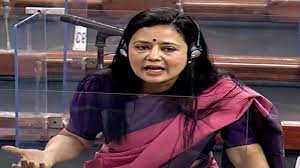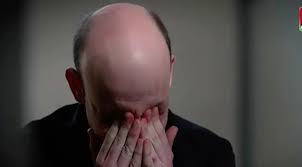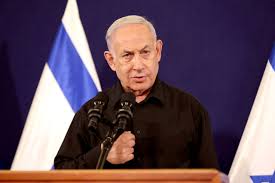
Monitoring Desk
NEW DELHI: An Indian member of parliament who is known to be a fierce critic of Prime Minister Narendra Modi’s governing Bharatiya Janata Party (BJP) is embroiled in a controversy over alleged misconduct in parliament.
Nishikant Dubey, a BJP lawmaker, has accused Mahua Moitra – an MP from the opposition Trinamool Congress party (TMC) – of asking questions in parliament in exchange for bribes.
Mr Dubey has alleged that Ms Moitra asked several questions targeting the Adani Group – a business conglomerate owned by one of Asia’s richest men, Gautam Adani – in exchange for gifts and cash from a businessman.
Ms Moitra has denied the allegations, and has said that she is ready to face any kind of inquiry. A parliamentary ethics committee started hearing the case on Thursday.
According to political experts, the committee cannot punish Ms Moitra even if it rules against her her as it does not have executive powers. Its recommendation will have to go before the house, which can decide to accept or reject it. In the instance Ms Moitra is expelled from parliament, she can challenge the decision in court.
The financial dealings of the Adani Group came under scrutiny in January, after Hindenburg Research – a US firm that specialises in “short-selling”- published a report accusing the conglomerate of engaging in decades of “brazen” stock manipulation and accounting fraud. The Adani Group has denied these allegations, calling the report “malicious”.
Since then, Ms Moitra and several opposition lawmakers have called on the government to investigate the allegations against the Adani Group. India’s market watchdog, the Securities and Exchange Board of India (Sebi), is currently investigating the allegations against the firm.
What has happened so far?
On 15 October, Mr Dubey wrote a letter to the speaker of the lower house of parliament highlighting information he had received from an advocate named Jai Anant Dehadrai.
Mr Dubey claimed that Mr Dehadrai – whom Ms Moitra has described as a “jilted ex” – had shared “irrefutable evidence of bribes exchanged” between her and businessman Darshan Hiranandani with the intention of targeting the Adani Group and Mr Modi.
Mr Adani is perceived as being close to Mr Modi and has long faced allegations from opposition politicians that he has benefited from his political ties, which Mr Adani and the BJP deny.
Mr Dubey claimed that “till quite recently” 50 of 61 questions Ms Moitra asked in the lower house of parliament were focused on the Adani Group and accused her of accepting bribes adding up to 20m rupees ($240,542; £197,700) from Mr Hiranandani.
Nishikant Dubey has demanded that Ms Moitra be suspended from parliament
Ms Moitra has denied the allegations and has filed defamation cases against Mr Dubey, Mr Dehadrai and several news organisations in the Delhi high court.
The Hiranandani Group had also refuted the allegations. On 20 October, it was reported that Mr Hiranandani submitted a “sworn affidavit” to the parliament’s ethics committee, changing his position and claiming that Ms Moitra had targeted Mr Adani and his enterprises to “become famous”.
He also accused Ms Moitra of having shared her parliamentary login credentials with him so that he “could post questions directly on her behalf when required”.
The alleged affidavit was reported on by news agencies within hours but in a press release posted on X (formerly Twitter), Ms Moitra questioned the authenticity of the affidavit.
“The affidavit is on white paper, and not an official letterhead or notarized. Why would one of India’s most respected/educated businessmen sign a letter like this on white paper unless a gun was put on his head to do it?” she wrote.
“Darshan Hiranandani has not been summoned by the CBI (India’s top investigation agency) or the Ethics Committee or indeed by any investigative agency yet. Who then has he given this affidavit to,” she added.
A day after Mr Dubey made the allegations, a spokesperson for the Adani Group claimed that Mr Dehadrai’s complaint “reveals that this arrangement to besmirch the reputation and interests of the Adani Group and its Chairman Gautam Adani has been in place since 2018”.
The TMC has not taken a definitive stand on the issue. The party’s lawmaker Derek O’Brien said that the TMC’s leadership would wait for the report by the ethics panel before taking an “appropriate decision”.
The controversy has made national headlines because Ms Moitra is seen as an important political figure who has managed to strike a chord with both urban and rural voters in the eastern state of West Bengal. Her supporters say the controversy is a ploy by the BJP to target Mr Moitra’s popularity among voters in the run-up to the general elections in 2024.
But federal minister Ashwini Vaishnaw has insisted that the allegations against Ms Moitra are of “grave importance”.
From banker to MP
Ms Moitra was a banker before she joined the TMC in 2010. Her early political career was confined to the state, where she worked with voters from the grassroots.
She fought a parliamentary election in 2019 from Krishnanagar constituency in West Bengal where she had to prove her mettle by representing hundreds of thousands of voters who fell below the poverty line – a benchmark to assess living conditions of an individual or a family.
Ms Moitra won the elections by a majority of 60,000 votes.
In her maiden speech in parliament, Ms Moitra argued that India had been witnessing “signs of fascism” under the BJP government. The speech went viral on social media and was met with mixed reactions, with supporters hailing her for her honesty while critics accused her of inciting fear.
Ms Moitra has since become a visible face of the TMC – a party which already has Mamata Banerjee, a strong woman leader at the helm.
Ms Banerjee, a fiery speaker whose party has joined an opposition alliance aiming to take on Mr Modi’s BJP in next year’s election, had in 2021 publicly scolded Ms Moitra for infighting within the party. Political observers are now closely watching for Ms Banerjee’s reaction to the ongoing controversy.–BBC






